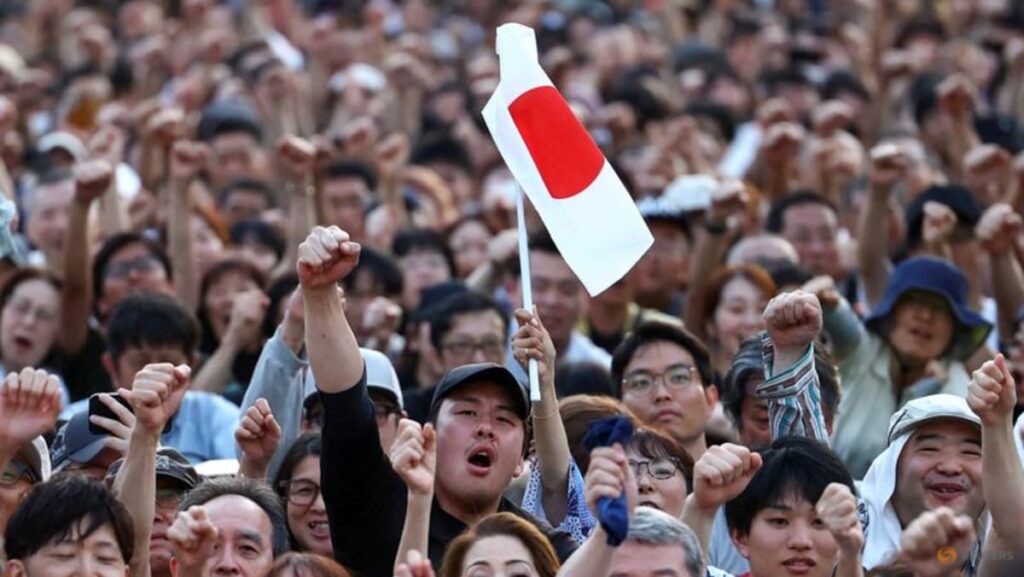TAPPING INTO PUBLIC ANXIETIES
Immigration has long been a sensitive issue in a rapidly ageing Japan facing chronic labour shortages, though the growing unease is also about overtourism. It comes at a time when the country reported both a record number of foreign residents (3.77 million as of the end of 2024) and a record number of tourists (21.51 million in the first half of 2025).
Sanseito openly advocates for stopping welfare benefits to foreigners, restricting their hiring and enforcing stricter cultural conformity – even proposing a system to “check the loyalty” of foreigners.
These exclusionary narratives have gained traction by tapping into public anxieties, particularly those driven by economic hardship and social uncertainty. Such rhetoric has created a distorted sense of crisis, suggesting that Japan is being “overrun” by foreigners and is somehow losing its national identity.
In reality, Japan’s foreign residents – roughly one in every 33 people – are vital contributors to society. They pay taxes, work in critical industries and help maintain essential public services. Blaming them for the country’s challenges is not only factually wrong but also dangerously divisive.
The party’s rise has not come without controversy. Sanseito has been widely criticised for spreading misinformation. Fact-checking initiatives by media outlets intensified during the election, with many articles flagged as misinformation focused on claims relating foreigners to crime or preferential treatment.
Read the full article here

